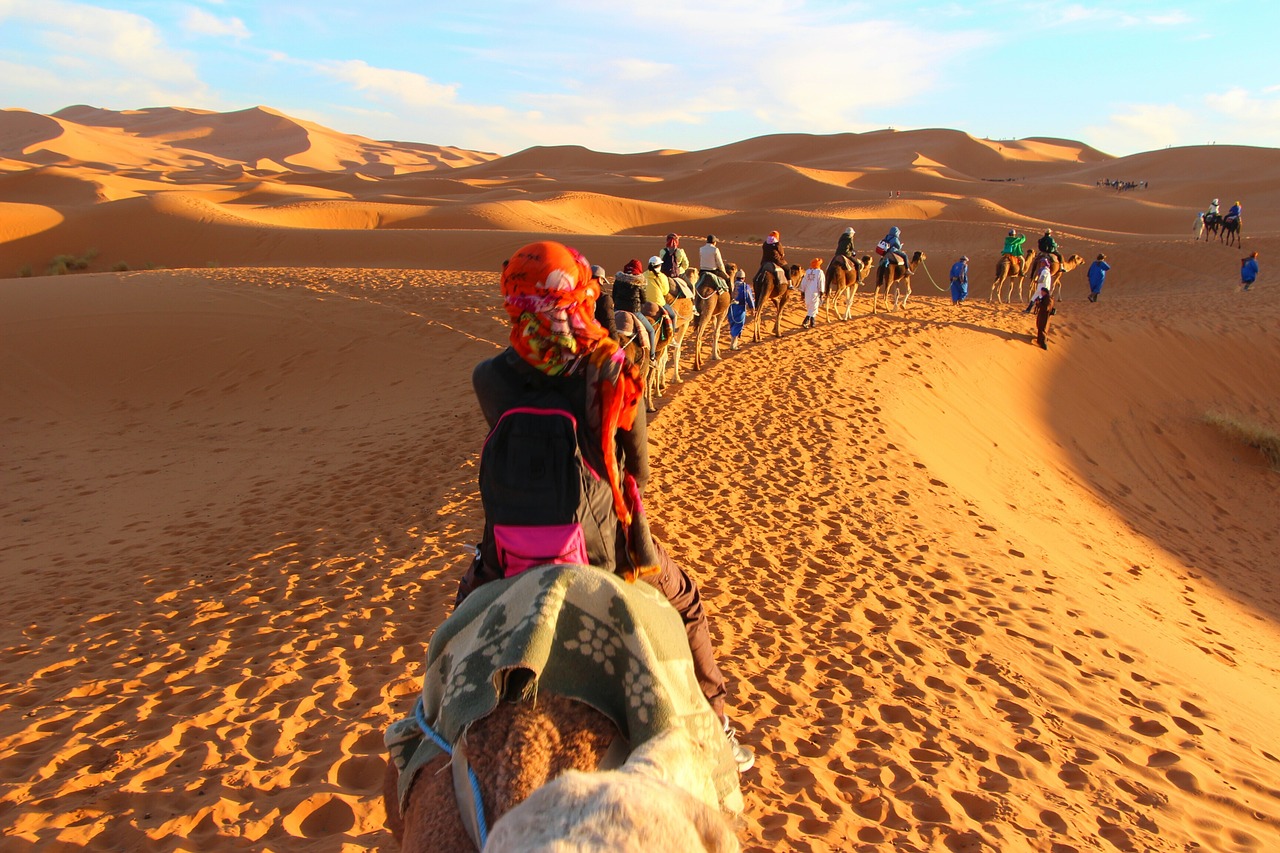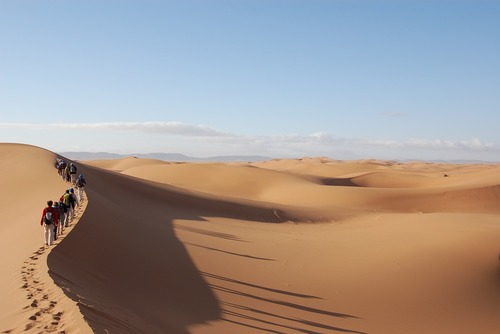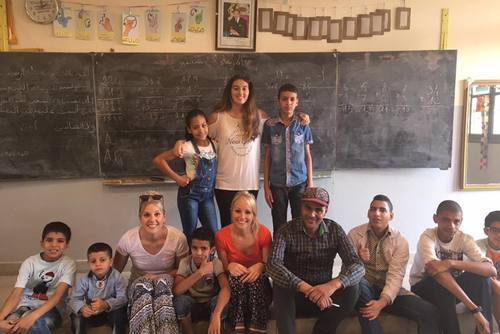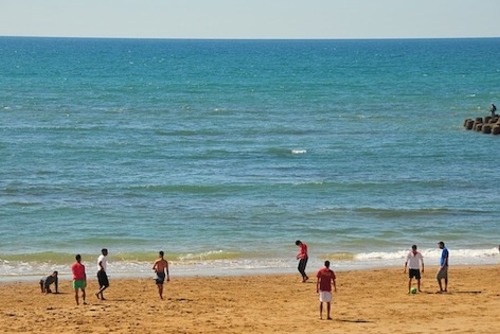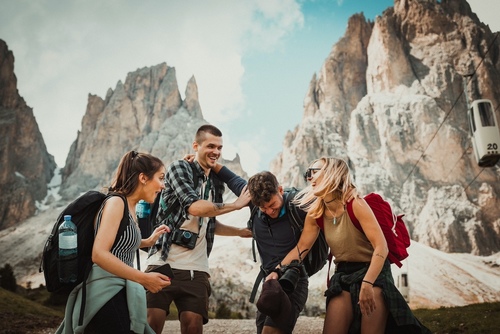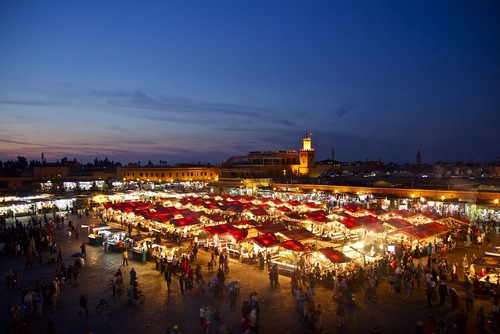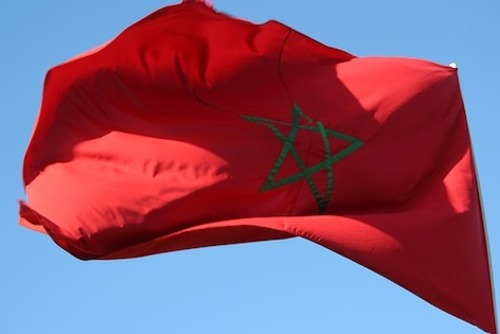Morocco has significant Berber, Arabian and European cultural influences, and both Moroccan Arabic, Berber and French are widely spoken.
Morocco used to be a French protectorate from 1912 to 1956 when the country gained independence. Assuming you are not competent in Arabic (not many British tourists are!), a basic knowledge of French will serve you well in most situations.
That said, there are some local words that you simply have to know – they’re part of the Moroccan experience. Here are some of the most important terms:
1. Riad
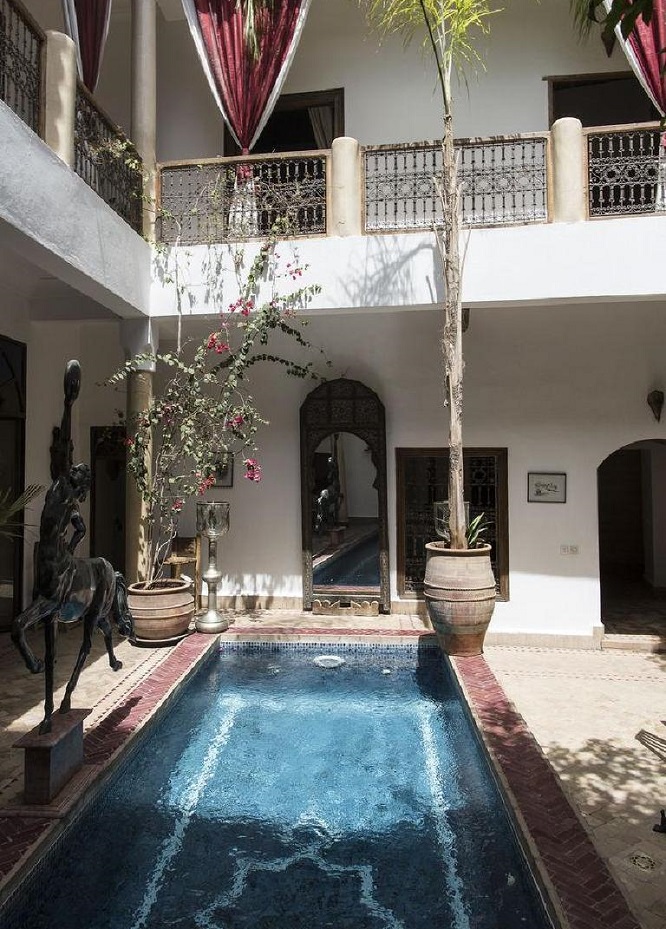
While there are many different types of accommodation on offer for visitors to Morocco, nothing beats staying in a traditional Riad.
Typically plain and simple on the outside, with thick walls to protect its inhabitants from prying eyes and potential city crime, a Riad is a Moroccan townhouse, often situated deep inside the ancient Medina (see below).
A Moroccon Riad won’t look like much from outside – in fact, you may have a hard time finding it since the only clue could be a simple sign on a non-descript door – but don’t let that fool you. In line with Islamic traditions, all the beauty will be focused on the inside. Many Riads have a courtyard, square or garden (sometimes with a pool) around which the property is built, allowing for maximum privacy. Even all the windows will be facing inwards.
While some Riads are still inhabited by local families, many have been turned into visitor accommodation, offering superb luxury, outstanding traditional cuisine and wonderfully attentive customer service. Why stay in a modern hotel when you can have an authentic experience?
2. Medina
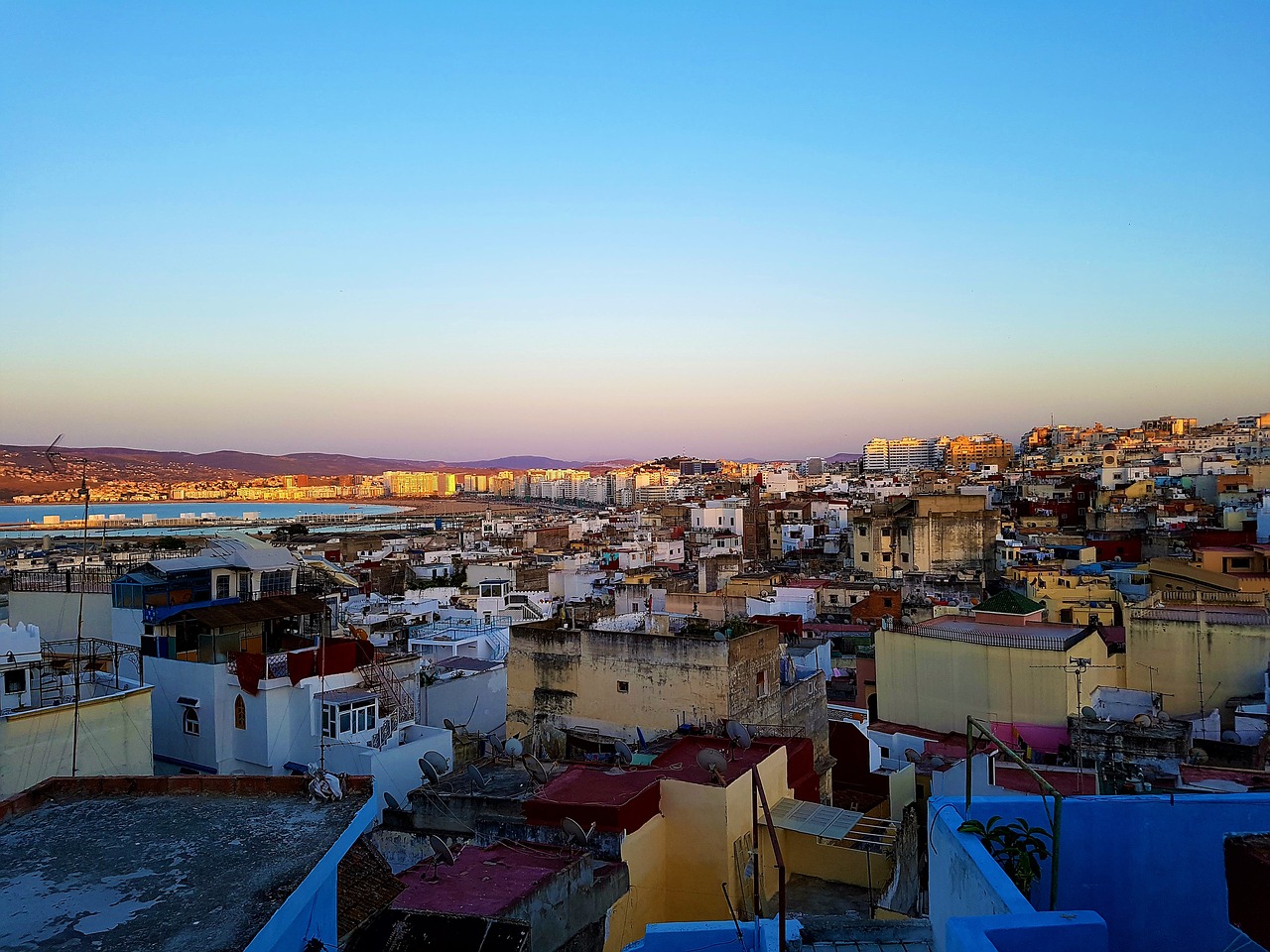
Exploring Marrakech, or any other city for that matter, all starts with the Medina, which is the heart of most Moroccan cities.
You’ll find one in Marrakech but also in other prominent cities such as Rabat, Tangiers and, most famously in Fez (Morocco’s old capital) which has the largest Medina in the world that now enjoys UNESCO World Heritage Site protection.
The Medina is typically the oldest part of the city where the first settlements occurred, featuring a maze like network of narrow, winding streets that are incredibly easy to get lost in, and surrounded by an ancient wall. Most Medinas are strictly for pedestrians, save the odd motorbike or donkey and cart.
Marrakech has a huge Medina that is particularly hard to navigate. If you are approached by a local child or teenager offering to guide you through it safely, make sure you haggle hard on the price!
3. Souk
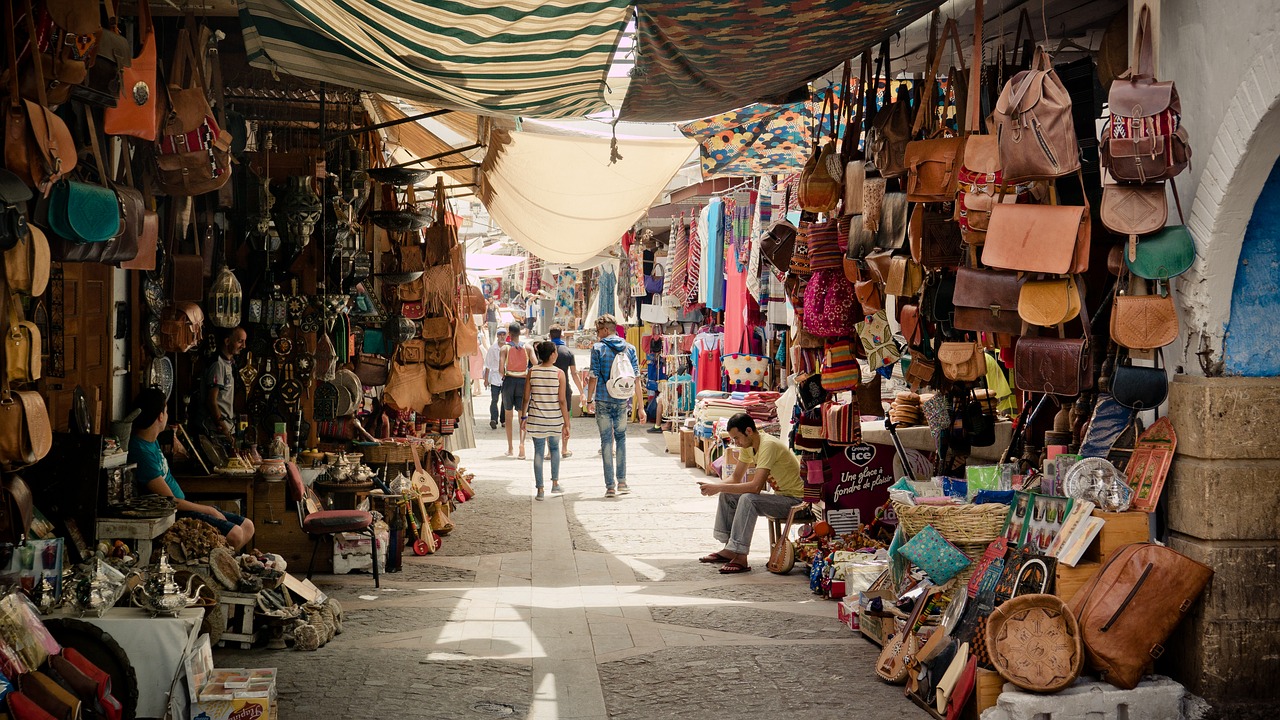
A Souk is a basic open air market square with vendors offering their wares in small stands. Medinas are full of souks, which are often surprisingly well signposted. Many souks specialise in one type of product, such as the spice souk, the leather souk of the gold souk.
The Marrakech Medina is famous for its many souks. The Jemaa-el-Fnaa area qualifies as a permanent souk, complete with snake charmers, monkey wranglers and plenty of other excitement, and is a must-see for any visitor to the city.
Souks are the perfect place for shopping while you’re on holiday. Just make sure you never take the first price at face value; practise your haggling skills! Otherwise, a souk is a wonderful place to stop at a café or teahouse and just sit and watch the world go by.
4. Kasbah
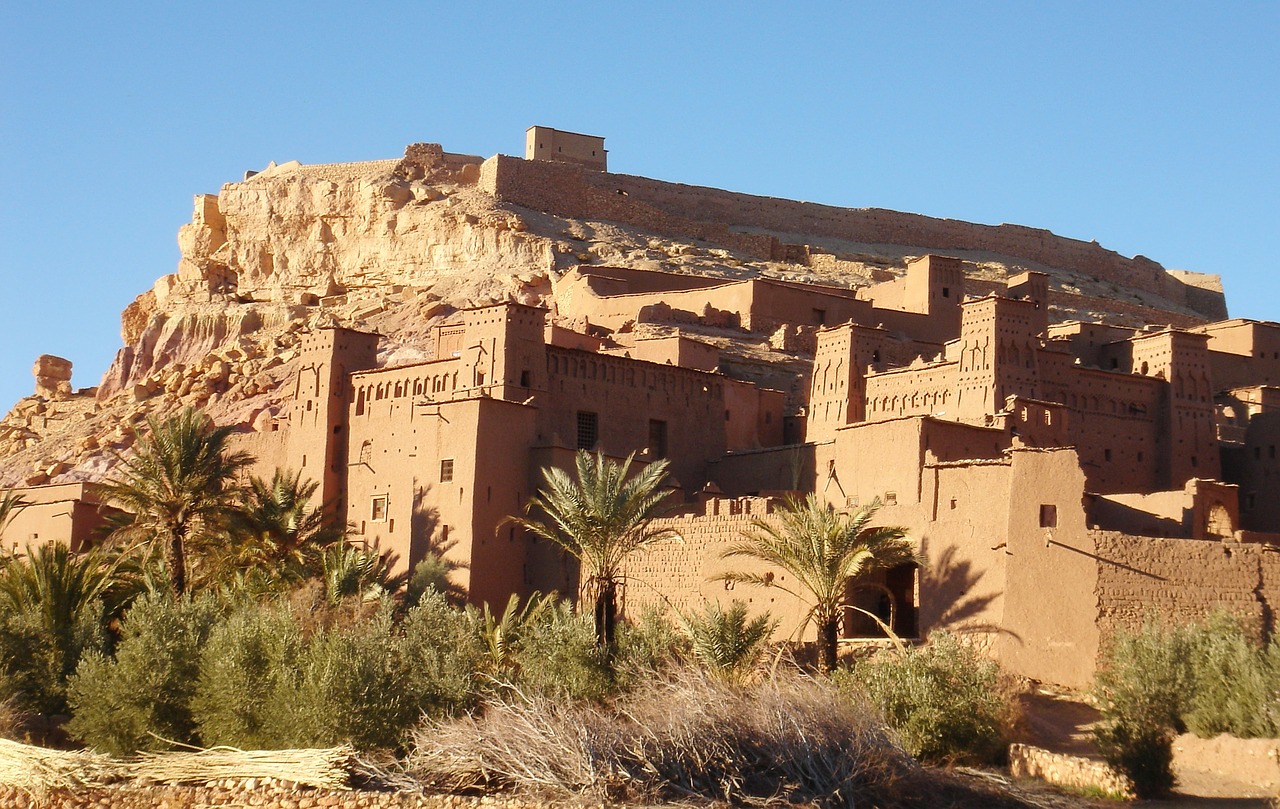
Many people confuse a Kasbah with a Medina, but they are very different things though a Kasbah can be an older type of Medina.
Originally, a Kasbah would serve as a fortress – they are small castles or chateaus often built high up on the hills by the ruling king or wealthy local family. Morocco has literally hundreds of Kasbahs – some in ruins, some still inhabited, some beautifully restored, some converted to restaurants and hotels.
One of the most famous Kasbahs in Morocco is on the ancient caravan route between Marrakech and the Sahara. Kasbah Ait Ben Haddou is now a UNESCO protected site and has found new fame as a film location in blockbuster movies such as The Mummy, Gladiator and Kingdom of Heaven.
Useful Basic Words & Phrases for Tourists
Below we have put together a list of important words and phrases you should try to learn if you are planning to travel to Morocco.
Greetings
- Hello - Ssalamū 'lekum
- Pleased to meet you - Metšerrfīn
- Good morning - Sbah lkḥīr
- Good afternoon - Mselkḥīr
- Good evening - Mselkḥīr
- Good night - Lla yemsek 'la khir
- Goodbye - Lla yemsek 'la khir
- Peace be unto you - As-Salam-Alaykum
Basics
- Please - Afak
- Thank you - Shokran
- Yes - Iyyeh
- No - Lla
- Okay - Wakha
- Now - Daba
- Not now - Mashi daba
- I would like - Bghit
- I don’t want - Ma bghitsh
- It’s okay - Mashi moshkil
- Excuse me - Sme lia
- Where is the toilet? - Fin kayna twalit?
- Slower - Beshwia
- Faster - Bezzerba
Conversational
- My name is Paul... - Ana smītī Paul
- Where are you from? - Mnīn nta?
- I'm from - Ana men
- I don’t speak Arabic - Ma kanhdersh lerbia
- I don’t understand - Ma fhemtsh
- Do you understand? - Fhemtini?
- I don’t know - Ma reftsh
- Can you help me? - Tqdr tawenni?
- I am looking for - Kanqelleb la
Plan a Trip to Morocco
Morocco is a fantastic destination if you are seeking culture and adventure.
You can explore some of the best cities in Africa or go surfing in Morocco and experience beatiful beaches and coastline.
If you would like to see as much as possible search Morocco tours, benefits include getting an experienced guide showing you the highlights of the country and also getting to travel with like-minded people.
For something rewarding search this guide to the best volunteer programs in Morocco or apply for teaching jobs in Morocco.
Have you ever been to Morroco? do you have any advice to share? Or words or phrases we have missed? Let us know in the comments section below.

